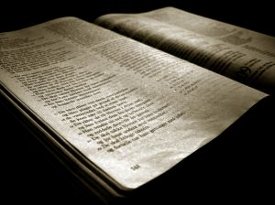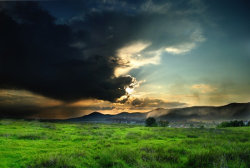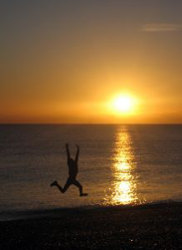Joni: The Day That Changed Everything
Body
“47 years ago, I took a reckless dive into shallow water – it was a fateful dive which completely altered my life.”
As iron sharpens iron,
one person sharpens another. (Proverbs 27:17)
“47 years ago, I took a reckless dive into shallow water – it was a fateful dive which completely altered my life.”
 This outline continues a series preached in 2002. However, since my original outline for 1 Peter 1:13-16 is missing, the following is new.
This outline continues a series preached in 2002. However, since my original outline for 1 Peter 1:13-16 is missing, the following is new.
What do you say to people who are suffering? More to the point for us, what do believers say to believers who are suffering?
It’s fascinating to me what Peter communicates to the suffering believers who were the original audience for the epistle we call 1 Peter. Though their suffering was apparently of the persecution variety, Peter puts his message in terms that speak to the heart-need of the Christian experiencing any kind of serious difficulty.
What the suffering saint needs to hear is what we find in this epistle—and what we find is a bit surprising. Peter reminds the believers of who they are in this world (displaced but God-beloved strangers) and who they are in Christ (reborn heirs of a salvation so great even angels wish they knew more about it).
But then Peter burdens these struggling recipients of grace with a solemn three-fold responsibility. He commends them to firmly embrace something, to reject something, and to pursue something. To look at it another way, the Scriptures here command us to think differently, desire differently, and do differently.
Note the word “therefore” at the beginning of 1:13. The responsibilities that follow are being revealed because of the privileges already revealed in the preceding verses.
 This outline continues a series preached in 2002. For the curious, these outlines don’t look much like what I actually took to the pulpit. Those notes were color coded and heavily abbreviated, usually fitting on roughly one side of a single letter-sized sheet of paper.
This outline continues a series preached in 2002. For the curious, these outlines don’t look much like what I actually took to the pulpit. Those notes were color coded and heavily abbreviated, usually fitting on roughly one side of a single letter-sized sheet of paper.

The congregation kept singing, but I couldn’t. I just stood there alone in my row and shook with sobs I could only barely keep from being audible. I was alone because my family had stayed home that Sunday fighting head colds. I was sobbing because truth was hitting me in a very sensitive, yet very hungry, place. Fear can be a sin, and if we’ve been committing that sin in a big way, the moments that bring us to awareness tend also to be moments of overwhelming comfort. The conviction-comfort combo can just about knock you down.
At the time, I was a good five months into the most painful and terrifying period of my life (so far). Painful because, among other reasons, I was walking away not only from the pastorate I’d held for thirteen years but also from pastoral ministry in general (for the foreseeable future). Terrifying because time was running out on the (very generous!) severance pay and housing, and months of job-hunting and literally hundreds of job applications had produced no good leads. The job openings I was finding were mostly inadequate to provide what I knew we’d need for rent. But even these low-wage opportunities were failing to reach the interview stage.
[amazon 0525952454 thumbnail]
Timothy Keller wades into the depths of the human experience with Walking with God through Pain and Suffering. It’s a book that “take[s] life seriously … [and] want[s] to help readers live life well and even joyfully against the background of these terrible realities [of pain and suffering]” (p. 3). He does this by pointing out that Jesus Himself experienced suffering and pain. He shows how other worldviews attempt to address the concepts of pain and suffering but are bankrupt.
 Republished, with permission, from Voice magazine, Sep/Oct 2013.
Republished, with permission, from Voice magazine, Sep/Oct 2013.
Recently I read a blog post written by a conservative political columnist and radio host for whom I have mixed feelings. Even though I find that I agree with many of his political views, I find his tone and style of politics not to be my particular style. Still, he’s a gifted writer and this time he shared something I think Christians need to hear. His point is that while he cares about politics and advocates for his point of view, outrage is not all there is to life.
This columnist wrote:
I’m sorry, but I can’t live my life constantly fixated on the political outrage of the day and I can’t be outraged about every…thing under the sun. I go out with friends and talk about stuff other than politics, I play with my kids, I love my wife, I cook gumbo and make fantastic ice cream, I watch a bit of TV, don’t read as much as I should, I go to church, and I try to focus on the good in a world filled with sin and bad and evil.*
There is such an important message here for Christians. A message for me, particularly. While it is good and right to be outraged at injustice in the world, we can’t live on outrage. While it is good and right to roll up our sleeves and make a difference in the world by our lives and our actions, we can’t live on activism. You see, the narrative of the Scriptures is not just about what’s right and what’s wrong in the world and in our own hearts. The grand story is that there is good news available.
God didn’t ignore the evil that the Fall produced by sin. He spoke by the entrance of His Son, Jesus, into the world (Hebrews 1:2). When Jesus cried those anguished three words on the cross, “It is finished,” it signaled the beginning of the end. The power of sin and death, which so strangles the human soul, which ravages the planet, which obscures the glory and grandeur of our great God—this has been defeated, and like a helium balloon, is dying a slow death. Evil, my friends, is not winning.
Kirk Cameron on film project. Unstoppable: Why God lets bad things happen to good people.

The nation of Sudan was ravaged by civil war from 1983-2005. For years, the Islamic government of the north instigated a reign of terror against the largely Christian and African traditionalist populations in southern Sudan. Over two million Sudanese died in the conflict (which is far from resolved). Millions more were displaced from their homes.
Among the refugees were over 20,000 orphaned boys, mostly of the Nuer and Dinka ethnic groups. Refugee aid workers began calling them, “The Lost Boys of Sudan.” One of these boys, John Bul Dau, was just twelve years old when mortar shells rained down upon his peaceful Dinka farming village. John fled for his life into the night. In one terrifying moment, everything John had known was stripped away. He walked over 1,000 miles across God-forsaken terrain in search of hope. Thousands of boys on the same journey died of starvation.
Through a series of events, John eventually found refuge in the United States. As an adult, he chronicled his ordeal in an acclaimed documentary film produced in 2006 and a book published in 2007. Both works bear the arresting title: “God Grew Tired of Us.”
Discussion